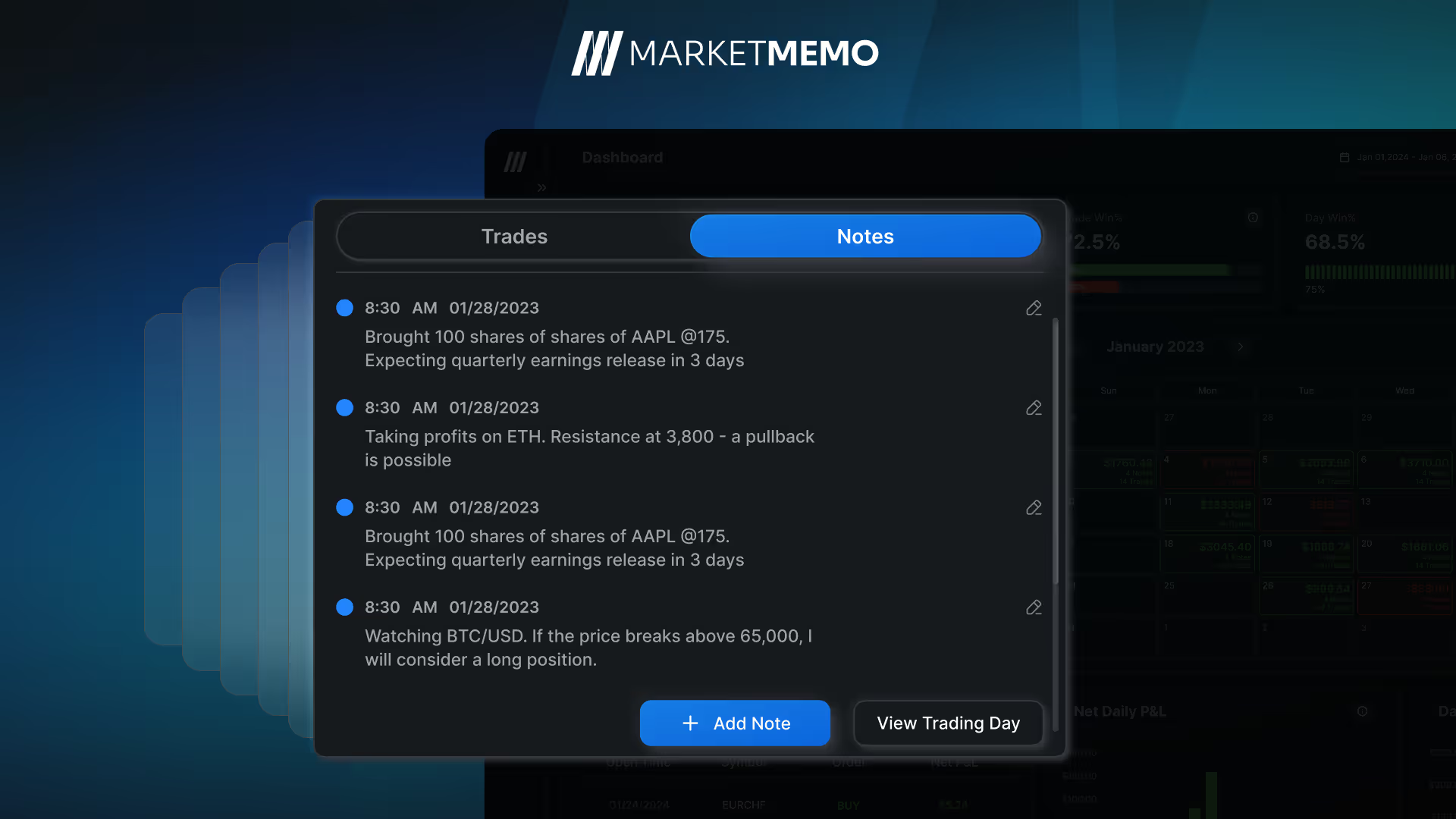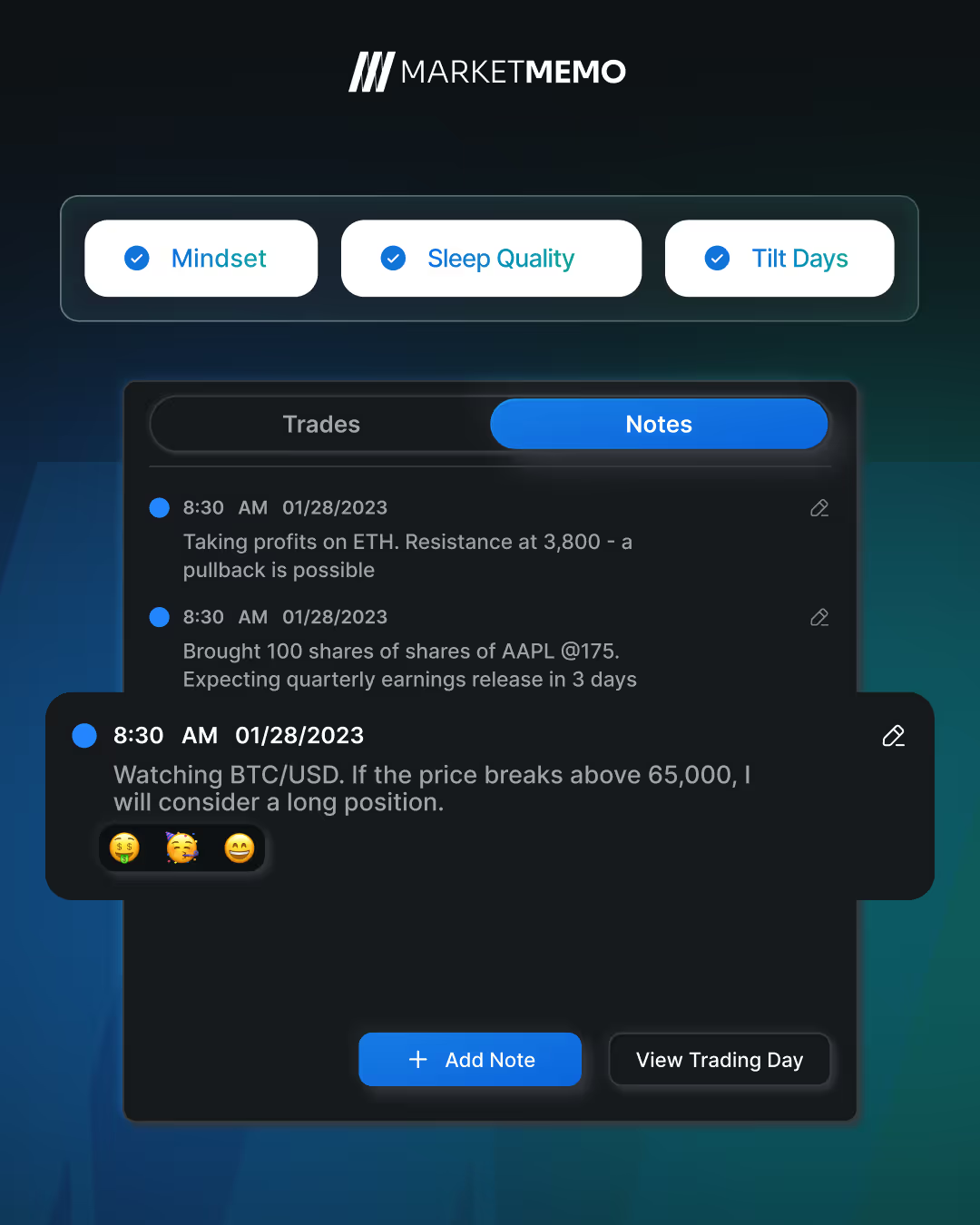The Psychology Notebook Every Trader Needs

If your mind isn’t in the right place, your trades won’t be either. It’s that simple.
Think of your trading psychology like the software behind a high-speed trading engine. If that software is buggy, slow, or overloaded, it doesn’t matter how good your trades look on paper. They’ll stall or crash. The best traders know this, and they log every glitch, update, and system upgrade. That’s where the MarketMemo Notebook comes in.
In this blog, we’ll show you how traders use the Notebook feature to track mindset patterns, uncover emotional triggers, and stay consistent in high-pressure markets.
1. Why Psychology Journaling Separates Amateurs from Pros
P/L shows results. Psychology shows cause.
Most traders obsess over entry signals but never log what was going on in their head. The pros do both. Using a trader psychology journal isn’t about over-analyzing. It’s about identifying patterns that mess with performance. Did that loss spiral come after poor sleep? Were you revenge trading after a missed setup? Journaling these moments trains emotional intelligence, and better trades follow.

Tip: Create recurring prompts like: “What emotion showed up most today?” or “Did I trade with intention or impulse?”
Traders who review emotional trends weekly are 38% more likely to improve risk management in the following month.
"You don’t need perfect discipline, just awareness. The Notebook gets you there."
2. Inside the MarketMemo Notebook: How to Actually Use It
Journaling shouldn’t feel like homework. It should feel like a strategy.
The MarketMemo Notebook lets you log entries tied to trades, to your day overall, or as standalone reflections. It’s like having your own mental blueprint on file. You can group by theme (e.g., psychology, weekly recap, trading setups), track streaks, and even search past entries to spot recurring emotions.
Tip: Start a notebook entry every Sunday. Reflect on how you felt last week, and what mindset you want to bring into this week.
Journaling that includes emotional context is 2x more effective for behavioral change than trade-only logs.
"The best trades start with a clear head. Not just a good setup."
3. What to Track in Your Psychology Notebook
You can’t improve what you don’t track. Traders who connect journaled emotions with specific trades report a 31% drop in impulsive trades within 3 weeks.
Here are five high-impact prompts to use weekly:
- What emotion showed up most this week?
- When did I feel most in control?
- What moment shook my confidence?
- Did I follow my rules or justify breaking them?
- What would a top trader have done differently?

Tip: Tie answers back to specific trades and tag those trades accordingly for easier cross-reference.
"Mindset journaling isn’t a luxury. It’s leverage."
Final Memo: Your Mind is the Most Underrated Trading Tool
Don’t just log P/L. Log the person behind the P/L. That’s how trading discipline is built. The MarketMemo Notebook gives you the structure to reflect, reset, and refine your edge, week after week.
Ready to level up your forex journaling habits? Start using the MarketMemo Notebook with your first month free using code EARLYBIRD and get 20% off for life.


